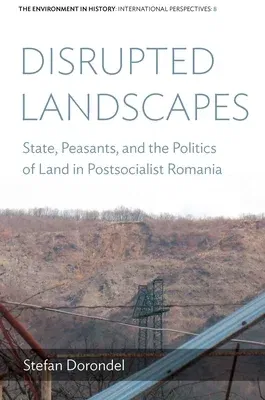Stefan Dorondel
(Author)Disrupted Landscapes: State, Peasants and the Politics of Land in Postsocialist RomaniaPaperback, 5 April 2021

Qty
1
Turbo
Ships in 2 - 3 days
In Stock
Free Delivery
Cash on Delivery
15 Days
Free Returns
Secure Checkout

Part of Series
Environment in History: International Perspectives
Print Length
252 pages
Language
English
Publisher
Berghahn Books
Date Published
5 Apr 2021
ISBN-10
180073011X
ISBN-13
9781800730113
Description
Product Details
Author:
Book Format:
Paperback
Country of Origin:
US
Date Published:
5 April 2021
Dimensions:
22.86 x
15.24 x
1.35 cm
Genre:
Eastern Europe
ISBN-10:
180073011X
ISBN-13:
9781800730113
Language:
English
Location:
New York, NY
Pages:
252
Publisher:
Weight:
344.73 gm